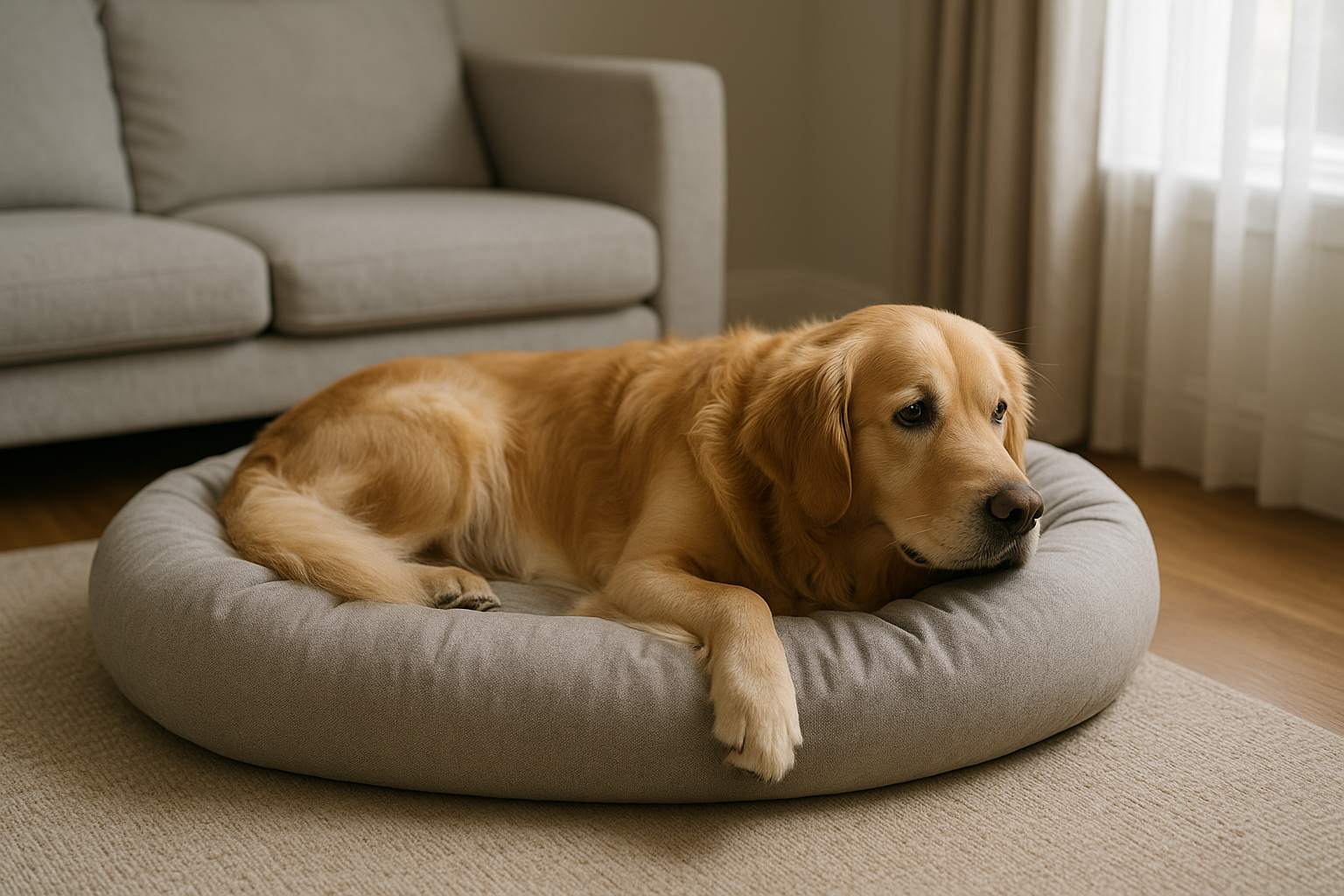Golden Retrievers are known for their affectionate and social personalities—they love being close to their humans. But what happens when life requires you to leave your Golden home alone for several hours? Can they handle it? And how can you make that time apart easier and safer?
In this article, we’ll explore how long you can leave a Golden Retriever alone, what they need to cope with your absence, and how to prevent common issues like separation anxiety and destructive behavior.
Can You Leave a Golden Retriever Alone?
Yes, Golden Retrievers can be left alone—but only if their physical and emotional needs are met in advance and proper routines are in place.
Key Facts:
- Goldens are very people-oriented, which means they don’t naturally enjoy being alone.
- Without preparation, long hours alone can lead to stress, boredom, and destructive habits.
- With training and structure, they can learn to stay calm and content when home by themselves.
The process starts with gradual independence building.
How Long Can a Golden Retriever Stay Alone?
The ideal amount of time depends on your dog’s age, training level, and personality.
General Guidelines:
- Puppies (under 6 months): No more than 2 hours
- Adolescents (6–18 months): Up to 4 hours
- Adult Goldens: Up to 6–8 hours, with preparation
- Senior dogs: Depends on health and bathroom needs—often shorter periods
Even if your Golden can tolerate 8 hours alone, it should not be an everyday norm.
What Happens If They’re Left Alone Too Long?
Without stimulation and routine, Golden Retrievers can develop behavioral and emotional problems.
Potential Issues:
- Separation anxiety: Barking, pacing, destructive chewing, urinating indoors
- Boredom-related damage: Furniture, shoes, and doors often become targets
- Depression: Lethargy, appetite loss, withdrawal
- Overhydration or holding urine for too long, leading to health concerns
That’s why preparation and proactive strategies are essential.
Tips to Help Your Golden Stay Calm When Alone
1.
Establish a Predictable Routine
Dogs thrive on consistency. Feed, walk, and play at similar times daily so they know what to expect.
2.
Exercise Before You Leave
A tired Golden is a calm Golden. A long walk, a play session, or mental games before leaving can help burn off nervous energy.
3.
Create a Comfortable “Safe Zone”
Use a cozy area like a crate (if crate-trained), a quiet room, or a gated section of your home with:
- A comfortable bed
- Chew toys
- Puzzle feeders or treat-dispensing toys
- White noise or calming music
4.
Use Interactive Toys
Enrichment keeps their mind busy and reduces boredom:
- Frozen KONG with peanut butter
- Lick mats
- Puzzle feeders
- Snuffle mats Rotate toys every few days to keep them exciting.
5.
Avoid Emotional Goodbyes
Keep your departures low-key. Over-the-top goodbyes can trigger anxiety. Act as if it’s no big deal—you’ll be back soon.
What to Do If Your Golden Has Separation Anxiety
Some Golden Retrievers experience intense distress when left alone. If you notice symptoms like barking for hours, escaping, or harming themselves, it’s time to take action.
Solutions:
- Gradually desensitize your dog to being alone using short departures and building up over time.
- Use cameras to monitor their behavior when you’re away.
- Consult a certified dog trainer or canine behaviorist.
- Talk to your vet about possible anti-anxiety supplements or medications.
Never punish a dog for anxiety-driven behavior—it’s not mischief; it’s fear.
Alternatives for Long Hours Alone
If your lifestyle requires you to be away for long periods, consider these options:
1.
Doggy Daycare
Great for social Goldens who need attention and play. It provides exercise, companionship, and stimulation.
2.
Dog Walkers or Pet Sitters
Hire someone to come during the day for a walk or play session.
3.
Family or Neighbors
Ask trusted people to stop by and check on your Golden.
Even one break in the day can significantly improve their well-being.
Long-Term Habits That Encourage Independence
Over time, your Golden can learn that being alone isn’t scary—it just means a nap until you’re back.
Encourage Independence By:
- Giving them quiet time during the day while you’re home
- Letting them rest in a different room for short periods
- Praising calm, relaxed behavior when they’re by themselves
- Practicing short departures even when you don’t have to leave
This builds resilience and confidence.
Final Thoughts: Alone Time Doesn’t Have to Be Stressful
Golden Retrievers are loyal and loving companions who want to be near you—but they can also learn to be content alone. With preparation, the right tools, and a little creativity, you can help your dog feel safe and secure even when you’re not home.
It’s not about leaving them alone forever—it’s about teaching them that you always come back.

